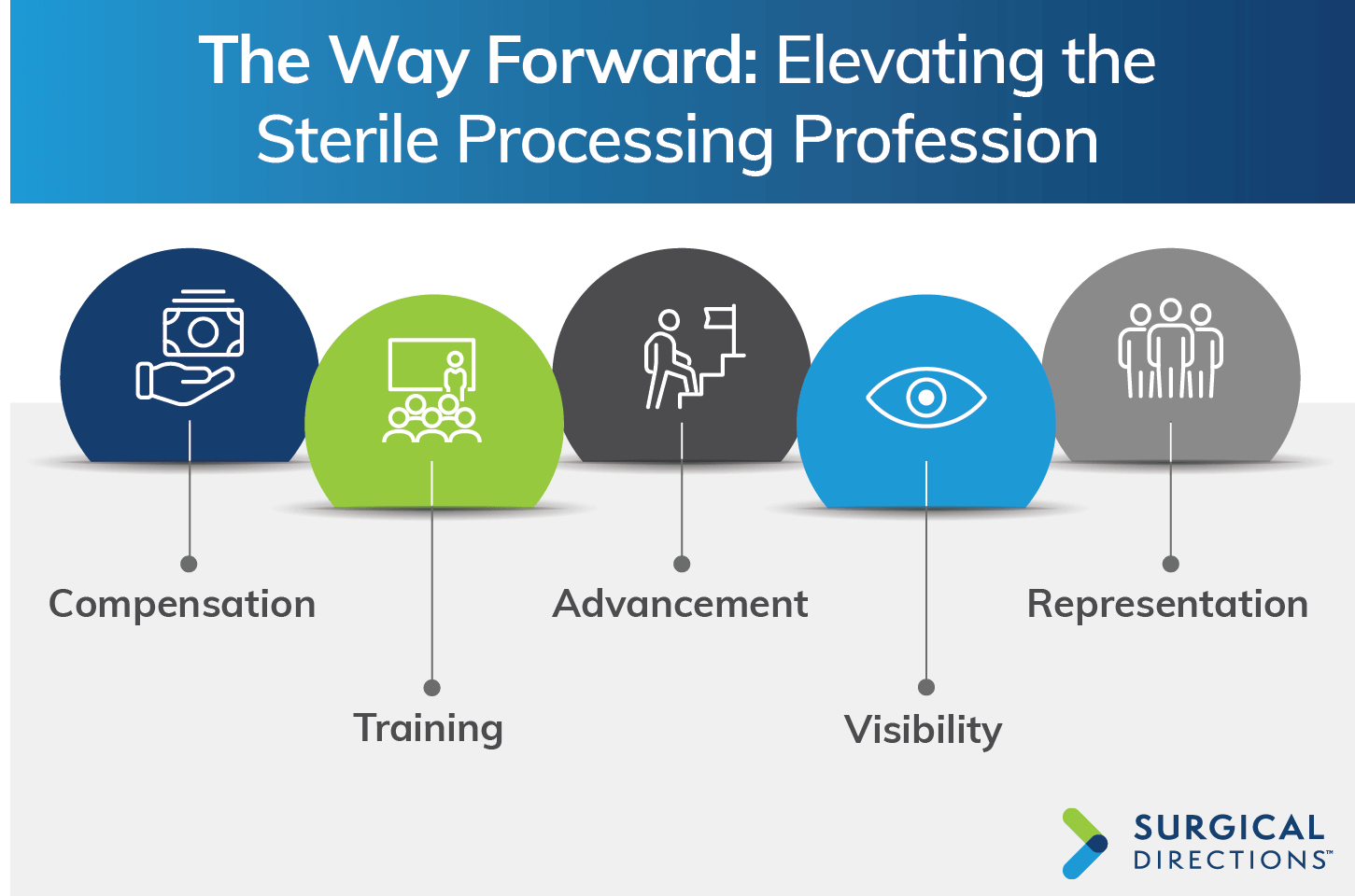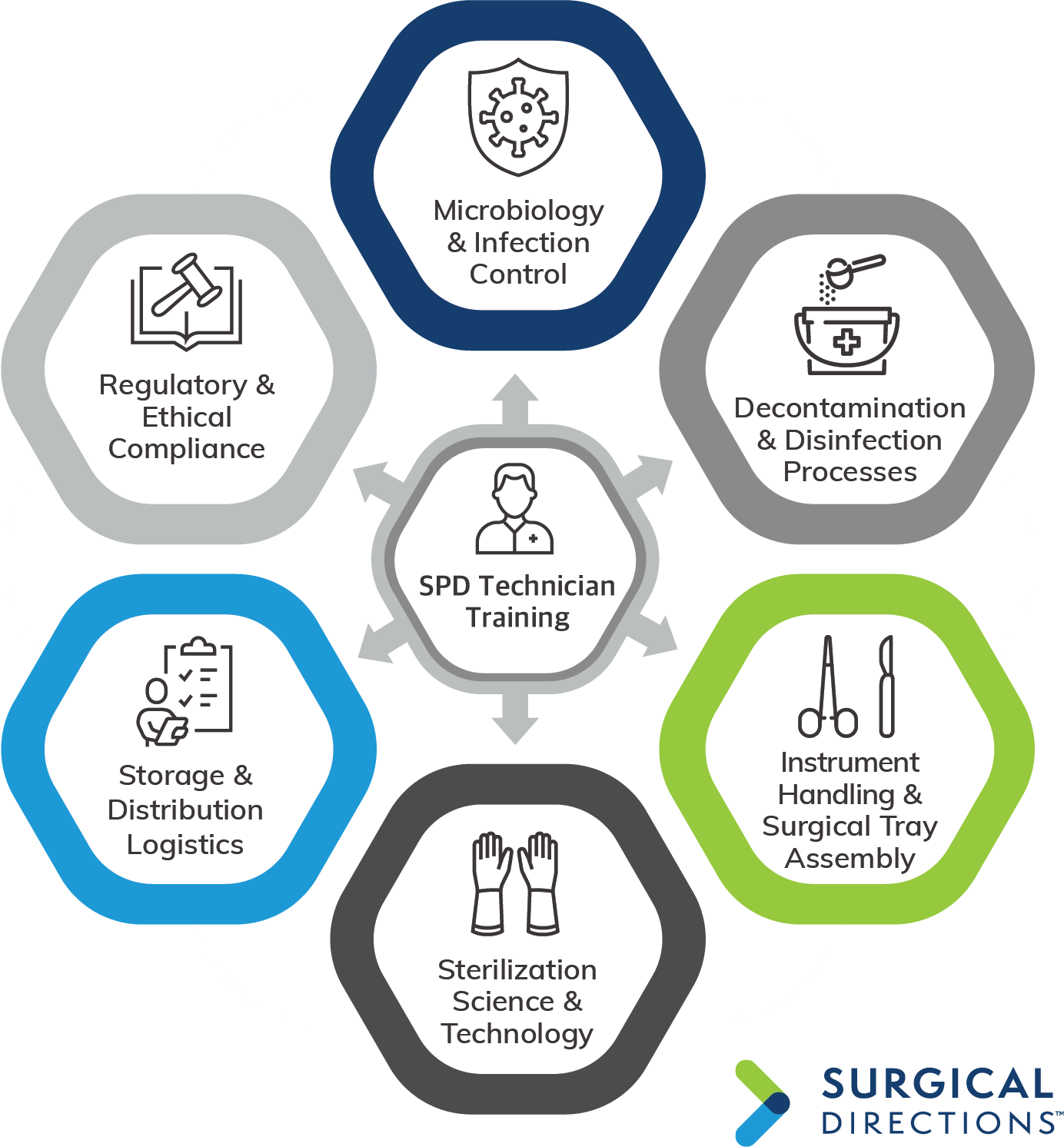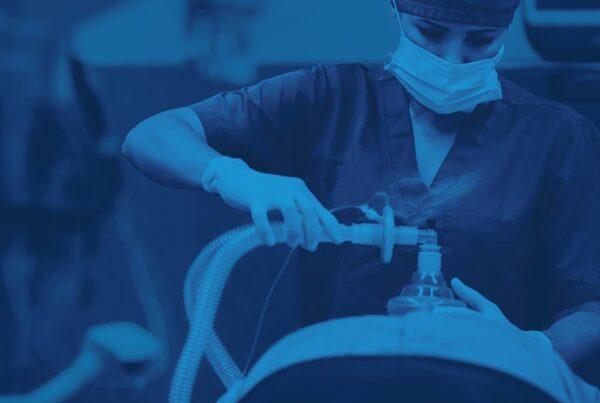FOR IMMEDIATE RELEASE
Surgical Directions Highlights Urgent Sterile Processing Workforce Challenges Impacting Surgical Safety
Chicago, IL – September 18, 2025 — Surgical Directions announced today the release of its latest report, Unseen but Essential: The Knowledge Demands and Staffing Crisis in Sterile Processing, which reveals a growing patient safety risk linked to chronic staffing shortages and underinvestment in sterile processing departments (SPD) across the U.S.
Sterile processing technicians are responsible for ensuring that every surgical instrument used in an operating room is decontaminated, inspected, sterilized, and delivered with uncompromised accuracy. Despite being the foundation of safe surgical care, SPD roles remain under-resourced, under-recognized, and difficult to fill.
“SPD is the backbone of surgical safety, but it is frequently invisible within the hospital ecosystem,” said Barbara McClenathan, RN, BSN, MBA-HCM, CNOR, Vice President of Nursing at Surgical Directions. “These professionals manage highly technical processes that directly affect patient outcomes. Without targeted investment in training, compensation, and integration into hospital safety strategies, health systems risk surgical delays, infections, and compliance failures.”
Key Findings
- High Risk to Patient Safety: Up to 5% of surgical patients experience surgical site infections (SSIs), many of which are tied to improper instrument sterilization.
- Workforce Shortages: Hospitals report persistent SPD vacancies, with roles often remaining unfilled for months due to low pay, limited career pathways, and complex certification requirements.
- Knowledge-Intensive Expertise: SPD technicians require training in microbiology, infection control, sterilization science, regulatory compliance, and advanced instrumentation—yet compensation rarely matches the skill level required.
- Operational Impact: Staffing gaps and mismanaged workflows result in procedure delays, cancellations, and surgeon dissatisfaction, contributing to lost revenue and regulatory penalties.
5 Strategic Actions for Healthcare Leaders

Surgical Directions recommends five strategic actions to address the SPD staffing and quality crisis:
- Increase Compensation to reflect the technical complexity and clinical impact of the role.
- Invest in Training by funding structured onboarding, certification programs, and ongoing education.
- Develop Career Pathways that create opportunities for leadership, quality oversight, and education roles.
- Enhance Visibility by recognizing SPD’s role as a critical partner in surgical quality and patient safety.
- Integrate SPD into Governance ensuring department leaders have a seat at the table in infection prevention, OR management, and safety strategy discussions.

Why It Matters
Hospitals nationwide are under increasing pressure to improve surgical quality, reduce hospital-acquired infections, and enhance patient outcomes. Understaffed and under-supported SPDs create a high-risk environment where safety, compliance, and operational efficiency suffer.
“Every instrument that enters a patient’s body passes through the hands of a SPD technician,” McClenathan emphasized. “Investing in these professionals is not optional—it is essential to safeguarding patients and protecting hospital performance.”



